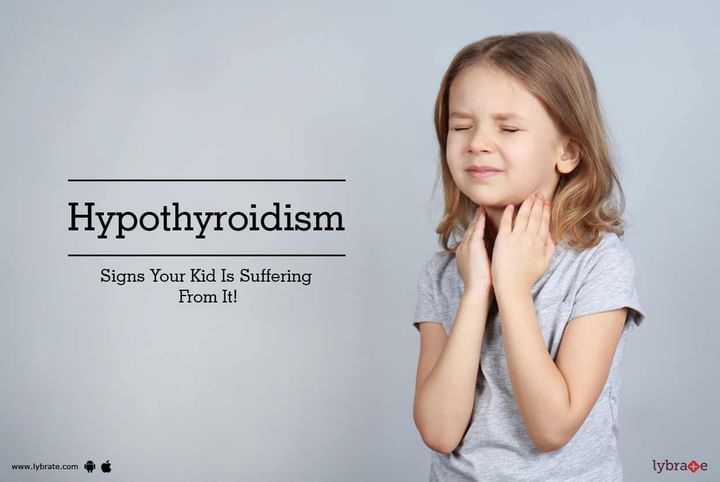Hypothyroidism - Signs Your Kid Is Suffering From It!
To understand about hypothyroidism, it is essential to first understand the thyroid gland. Thyroid is an endocrine gland situated in the neck and produces the thyroid hormone. This hormone is then carried through the blood to different cells of the body. It helps the organs to function properly maintain the temperature of the body. The two thyroid hormones are Triiodothyronine (T3) and Thyroxine (T4). They regulate protein, fat, carbohydrates and vitamins in the body along with the metabolism. They are also responsible for the proper differentiation and development of cells.
Hypothyroidism or underactive thyroid or low thyroid
This is a condition where the thyroid gland is underactive and produces a low amount of the thyroid hormone. To help the thyroid gland produce the required amount of T3 and T4 hormones, the pituitary gland will make additional thyroid stimulating hormone called TSH. Due to this additional secretion of TSH, one also develops chance of thyroid gland enlargement and in some cases, it can form a goiter.
The major cause of the low level of thyroid hormones is considered to be iodine deficiency. Hence the addition of iodine to the common salt has always been considered to be a safe method to prevent goiter. There can be several other causes of hypothyroidism such as weak immune system, radiation, surgery, Hashimoto’s disease, hormonal changes etc. It can be caused due to pregnancy and is called postpartum thyroiditis.
Symptoms of Hypothyroidism
Whatever be the cause of hypothyroidism, it can show the following mild symptoms:
- Increased sense of fatigue or tiredness
- Sudden increase in weight with puffiness on the face
- Hoarse voice
- Muscle weakness with aches, tenderness and stiffness
- Joint pain or stiffness
- Increased sensitivity towards cold thus causing dry skin
- Constipation due to slow metabolism
- Decreased heart rate
- Elevated blood cholesterol level
- Irregular menstrual periods
- Decreased concentration and depression too
However, it is important to understand that you may show no symptoms or show some mild symptoms that can be easily confused with some other condition. Hence, a proper diagnosis is a must to confirm hypothyroidism.
Diagnosis of hypothyroidism
The most common tests to determine if you have hypothyroidism are TSH Testing and T4 Testing. In case the low level of TSH is due to a defect in the pituitary gland, your doctor may request for another test called TRH. Also, Anti-thyroid Microsomal Antibodies Testing or thyroid peroxidase test (TPO) helps in identifying if the thyroid gland is damaged.
Treatment of hypothyroidism
Hormone replacement therapy is the best form of treatment available today. It involves the use of synthetic Levothyroxine (T4) or liothyronine (synthetic T3). Before these synthetic hormones were used for several years, however, prescribing thyroxine tablets is the most common mode of treatment and they are generally given for a really long period of time, although the dosage may vary. It is only in rare cases of severe decompensated hypothyroidism that one requires hospitalization.
Apart from the above treatment options, it is best advised to avoid soy products, sugary processed foods and alcohol to keep a check on hypothyroidism. In case you have a concern or query you can always consult an expert & get answers to your questions!



+1.svg)
